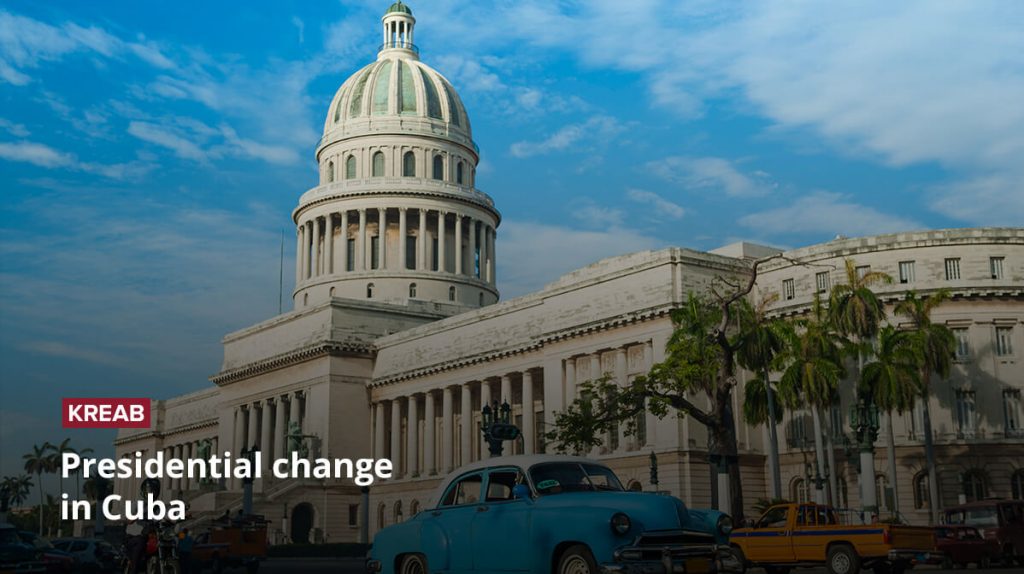
11/03/2018
Presidential change in Cuba
Miguel Díaz-Canel Bermúdez was elected by the National Assembly of People’s Power as President of the Councils of State and Ministers.
- As many political analysts predicted, Miguel Díaz-Canel Bermúdez was elected by the National Assembly of People’s Power as President of the Councils of State and Ministers, succeeding Raúl Castro as head of the country.
- Raúl Castro will continue to serve until 2021 as First Secretary of the Communist Party of Cuba, a political organization that is recognized in the Constitution as “the leading force of society and the State.”
- The continuity of the presidential change was verified as soon as it was ratified that socialism and the role of the PCC will remain untouchable in the constitutional reform that will take place soon.
- The plan for the next five years for the new government will be made up of the economic and social policies approved in the VI and VII Congresses of the PCC and that sustain all the reforms that have been undertaken in Cuba since 2011.
- The presence of the members of the generation that built the Revolution and of partisan leaders diminished considerably in the newly approved Council of State.
- The beginning of a possible separation at the highest level between the functions of the PCC and the Government was outlined, as well as the likely emergence of a Prime Minister figure once the Constitution is reformed.
- The approval by the National Assembly of People’s Power of the members of the Council of Ministers was postponed until next July, which suggests that a considerable number of Ministers and directors of the Central Administration of the State will be replaced.
